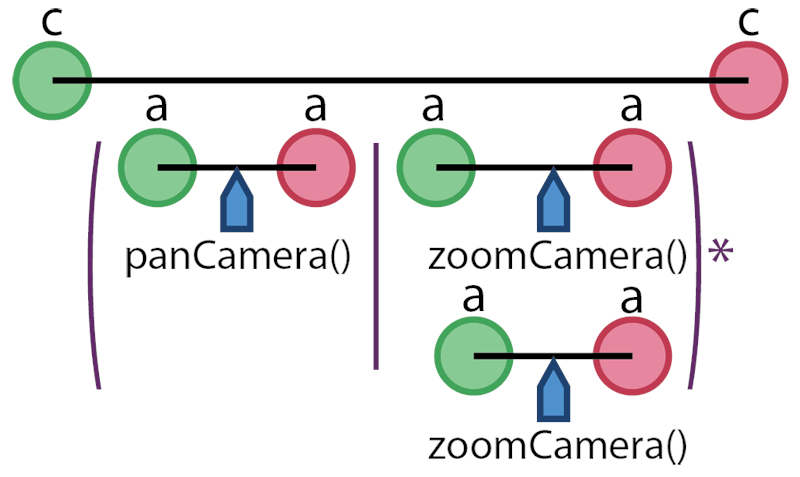
 |
 |
Proton: Multitouch Gestures as Regular Expressions Kenrick Kin, Bjoern Hartmann, Tony DeRose, Maneesh Agrawala January 2012 Current multitouch frameworks require application developers to write recognition code for custom gestures; this code is split across multiple event-handling callbacks. As the number of custom gestures grows it becomes increasingly difficult to 1) know if new gestures will conflict with existing gestures, and 2) know how to extend existing ... [more] To appear in CHI 2012 Available as Pixar Technical Memo #12-02 |
 |
Feature Adaptive GPU Rendering of Catmull-Clark Subdivision Surfaces Matthias Niessner, Charles Loop, Mark Meyer, Tony DeRose January 2012 We present a novel method for high-performance GPU-based rendering of Catmull-Clark subdivision surfaces. Unlike previous methods, our algorithm computes the true limit surface up to machine precision, and is capable of rendering surfaces that conform to the full RenderMan specification for Catmull-Clark surfaces. Specifically, our algorithm can accommodate base meshes ... [more] Available in ACM Transactions on Graphics, January 2012. |
 |
Eden: A Professional Multitouch Tool for Constructing Virtual Organic Environments Kenrick Kin, Tom Miller, Bjoern Bollensdorff, Tony DeRose, Bjoern Hartmann, Maneesh Agrawala January 2011 Set construction is the process of selecting and positioning virtual geometric objects to create a virtual environment used in a computer-animated film. Set construction artists often have a clear mental image of the set composition, but find it tedious to build their intended sets with current mouse and keyboard interfaces. We investigate whether multitouch input can ... [more] To appear in the proceedings of SIGCHI 2011 Available as Pixar Technical Memo #11-04 |
 |
Determining the Benefits of Direct-Touch, Bimanual, and Multifinger Input on a Multitouch Workstation Kenrick Kin, Maneesh Agrawala, Tony DeRose May 2009 Multitouch workstations support direct-touch, bimanual, and multifinger interaction. Previous studies have separately examined the benefits of these three interaction attributes over mouse-based interactions. In contrast, we present an empirical user study that considers these three interaction attributes together for a single task, such that we can quantify and compare the performances of each attribute. In our ... [more] To appear in Graphics Interface 2009 |
 |
Harmonic Coordinates for Character Articulation Pushkar Joshi, Mark Meyer, Tony DeRose, Brian Green, Tom Sanocki May 2007 In this paper we consider the problem of creating and controlling volume deformations used to articulate characters for use in high-end applications such as computer generated feature films. We introduce a method we call harmonic coordinates that significantly improves upon existing volume deformation techniques. Our deformations are controlled using a topologically flexible structure, called a cage, ... [more] Additional materials: [HarmonicCoordinates.divx], [SiggraphSlides.pdf] Available in the proceedings of Siggraph 2007. Available as Pixar Technical Memo #06-02b Other versions: |
 |
Wavelet Noise Robert L. Cook, Tony DeRose August 2005 Noise functions are an essential building block for writing procedural shaders in 3D computer graphics. The original noise function introduced by Ken Perlin is still the most popular because it is simple and fast, and many spectacular images have been made ... [more] Additional materials: [RapLyrics.txt] Available in the Proceedings of SIGGRAPH 2005 |
 |
Subdivision Surfaces in Character Animation Tony DeRose, Michael Kass, Tien Truong August 1998 The creation of believable and endearing characters in computer graphics presents a number of technical challenges, including the modeling, animation and rendering of complex shapes such as heads, hands, and clothing. Traditionally, these shapes have been modeled ... [more] Available in the Proceedings of SIGGRAPH 1998. |